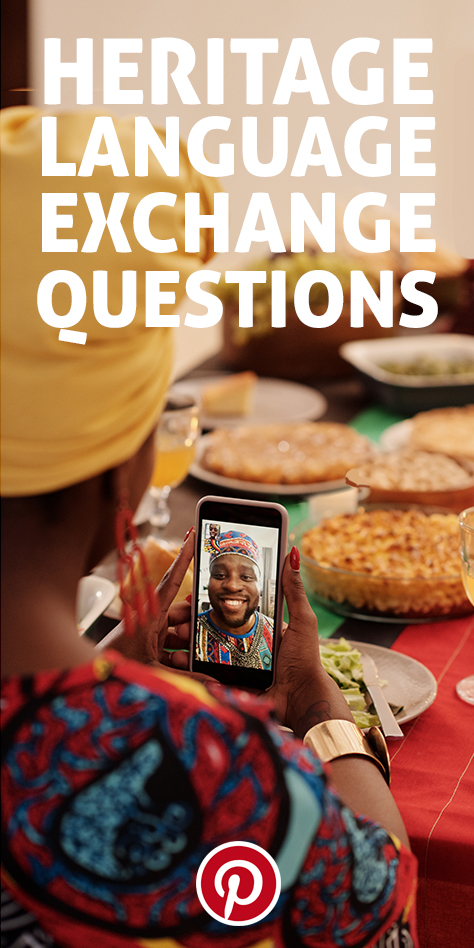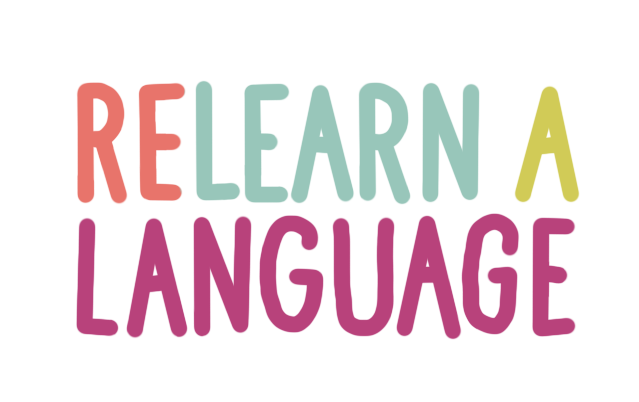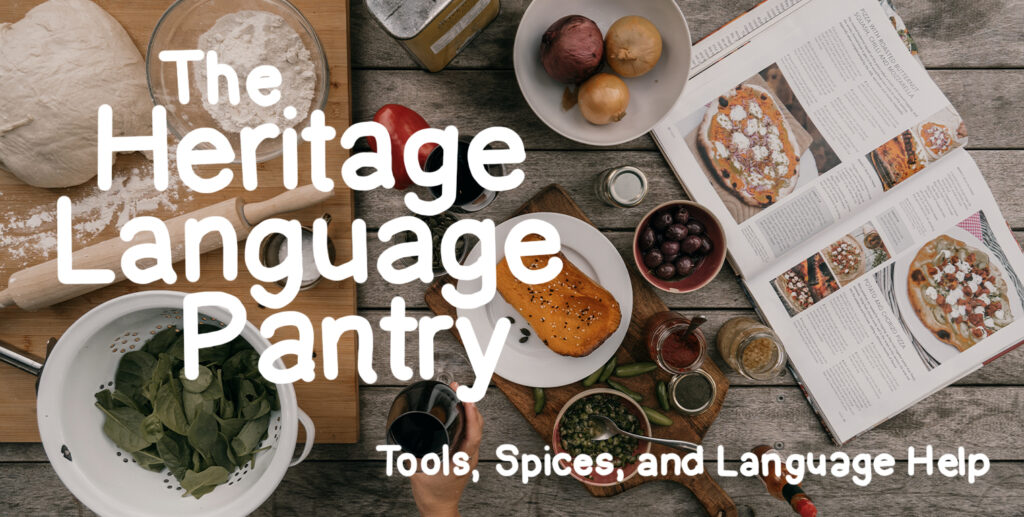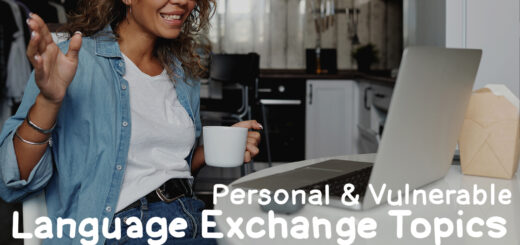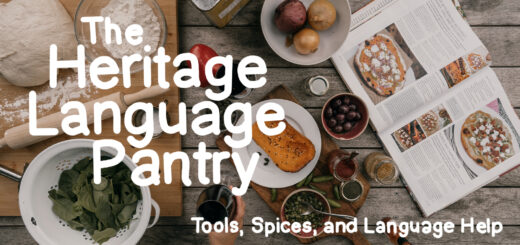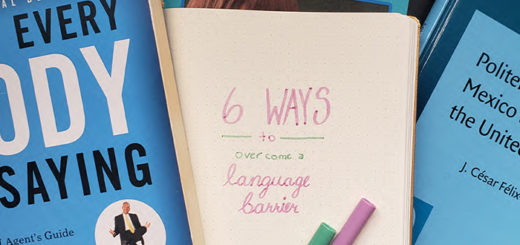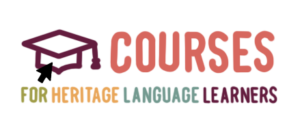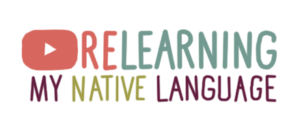100+ Conversation Exchange Questions for Heritage Language Learners
by Marissa Blaszko · October 3, 2021
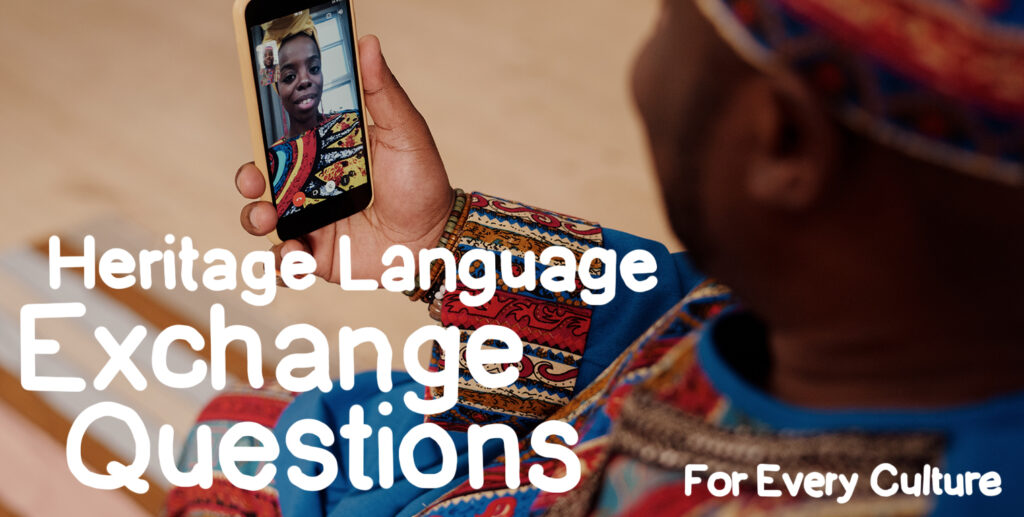
This list of conversation exchange questions was created specifically for heritage language learners trying to connect or reconnect with their cultures.
This list was created as part of our Heritage Speakers’ Pantry, a living list of resources that aims to help heritage language learners who are unsupported by institutions or teachers in their specific needs.
These conversation exchange questions were all written to be used by a speaker with either another heritage language learner OR a tutor or teacher, with the goal of helping students express their cultural identities with the language.
For learners who have no one to speak the language with, these conversation exchange questions can also be used as writing prompts for journaling, or for teachers who are looking for creative written homework assignments.
Conversation Exchange Questions
- Your Identity (A2-B1)
- Your Family (A2-B1)
- Your Traditions & Holidays (A2-B1)
- Your Food (A2-B1)
- Your Languages (B2-C1)
- Your Ancestors (B2-C1)
- Your Future (B2-C1)
- Your Biculturalism (B2-C1)
- Global Multiculturalism (B2-C1)
- Additional Topics & Lists
Want other topics?
Check our other lists:
- 400+ Topics for Language Exchanges (for new exchange partners)
- 200+ Personal & Vulnerable Questions (for trusted friends)
- 1,000+ Vocab Builder Questions (for working with tutors)
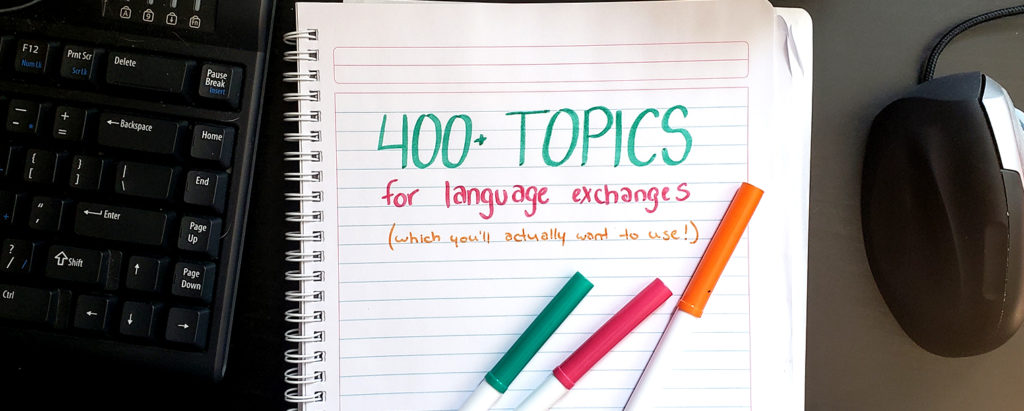
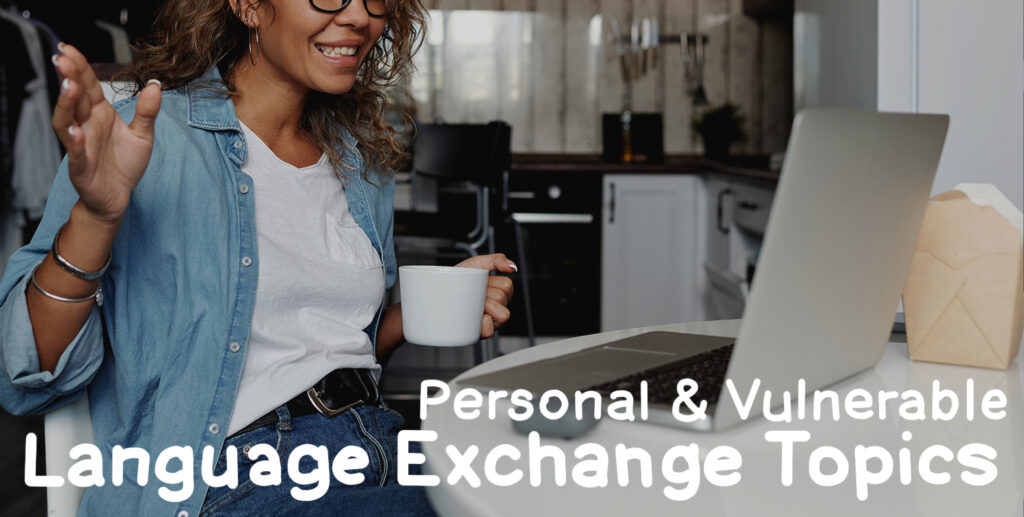
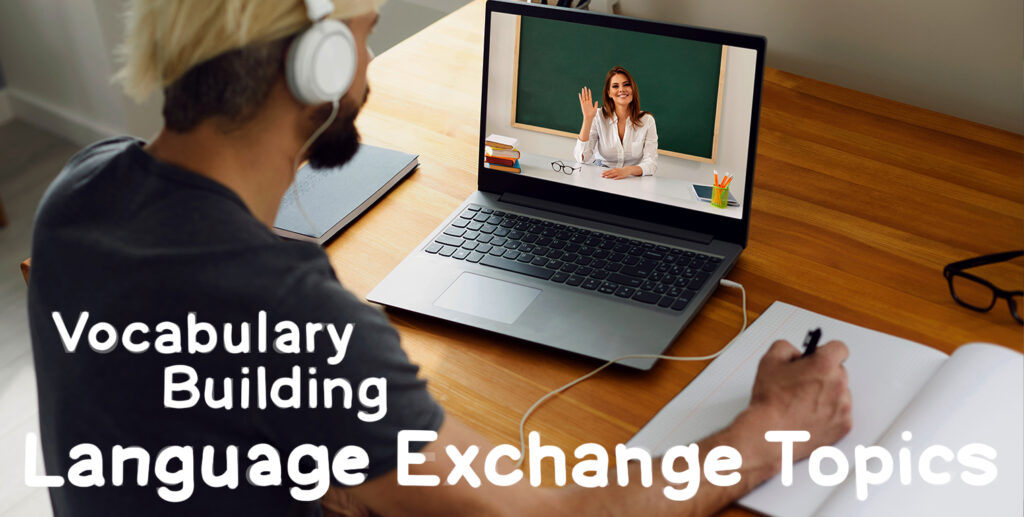
Tips for Using Conversation Exchange Questions
If you’ve never used conversation exchange questions before, I suggest starting with this video created by me (the author and Polish heritage language speaker) and some of my own conversation exchange partners.
Intermediate Conversation Exchange Questions (A2-B1)
Your Identity
- How do you identify culturally?
- What does that cultural identity mean to you?
- Do you have more than one heritage language? What do you classify as a heritage language?
- Is your cultural heritage important to you, or one of the most important things about you? Why or why not?
- Did you feel more or less in touch with your heritage culture as a child than as an adult? Why?
- Do you have a lot in common with people who share your cultural identity? Why or why not?
- Do you consider yourself bilingual or multilingual? Why or why not?
- How often do you watch, read, or listen to media from your culture? Why?
- What are some stereotypes about your cultural identity? Are they true?
- How much contact did you have with your heritage language as a child? What was your family’s attitude about it?
Your Family
- How do your different family members each identify culturally?
- What did your family do to connect with your culture as a child, if anything?
- Are there any family members you can’t communicate right now with your current language level? Why?
- Did your family participate in local cultural activities or travel to a homeland often when you were a kid? What are some of your memories?
- Was there anything specific you felt pride about from your culture when you were a child?
- Was there anything from your culture that you felt shame about as a child?
- What does the word “integration” mean to you? Is it positive or negative, or something else?
- Did you have extended family from your community or diaspora as a child? What were those relationships like?
- How important (or not) are your family connections in your motivation and process of learning/relearning/improving your heritage language right now?
- Who in your family or community are the most supportive of you working on your heritage language right now?
Your Traditions & Holidays
- What traditions does your family follow that are specific to your culture?
- What were your favorite holidays as a child? What was special about them?
- What traditions do you want to keep alive as an adult? Do you have any plans to do so?
- What new things have you learned about your own culture through language learning?
- Is your family’s religion important to you in your life or cultural connections?
- Can someone transmit traditions based on religion to future generations, without the religious beliefs? Why or why not?
- Does your family have any superstitions that they passed down? Do you believe in them?
- What is the most visually beautiful part of any traditions or holidays from your culture?
- What are some new traditions that you have now, that your ancestors 100 years ago didn’t have?
- Have you ever considered volunteering for or organizing cultural events in your community? Why or why not?
- What is one tradition or holiday you don’t want to keep as an adult yourself?
Your Food
- What’s the most stereotypical dish from your country? What do you think about the dish and its fame?
- What is one memory of a dish from your family that you have?
- What’s your least favorite food from your culture and why?
- What is the role of food in culture?
- What dish do you make the most often at home, if any?
- Have you ever been taught to cook any family recipes? Or where do you learn culturally important recipes from?
- Do you think we should only use traditional recipes or can we innovate them? (Think: “fusion food”.)
- Have you ever eaten food from your culture but prepared by someone from outside of your culture? What was it like? Should that be allowed?
- What one fruit, vegetable, or bread reminds you most of your family?
- What is the biggest difference between your culture’s food and the food created by the dominant culture where you live?
Don’t forget about our other 3 conversation exchange question lists:
- 400+ Topics for Language Exchanges (for new exchange partners)
- 200+ Personal & Vulnerable Questions (for trusted friends)
- 1,000+ Vocab Builder Questions (for working with tutors)



Advanced Conversation Exchange Questions (B2-C1)
Your Languages
- What language do you identify as your “native language” or “first language”? What do you think those labels mean?
- What is your first memory of your heritage language as a child?
- Who do you believe can consider themselves bilingual? Why do you believe in that definition?
- What do you think a child needs in order to become a bilingual adult?
- Did you ever attend any language programs as a child? What are your memories of them?
- What are your favorite phrases or words in your heritage language?
- Do you ever “code-switch”? When and why? (Switch between 2+ languages or ways of speaking.)
- What has been the most surprising thing about relearning or improving your heritage language?
- What do you think the roles is of language is in culture?
- Can you claim you’re from a culture if you don’t speak the language? Why or why not?
- Have you ever avoided speaking your language out of shame? When and why?
- How important do you think a “native-like” accent is, and why?
- What are your biggest motivations in relearning or improving your heritage language?
- Does it bother you when people make assumptions about you or your language based on your ability (or lack of ability) to speak it? Can you give any examples?
- What is your ultimate goal in learning, relearning, or improving your language?
Your Ancestors
- What do you know about your grandparents’ lives?
- Do you know about any ancestors before your grandparents? What do you know about them?
- How long removed does someone have to be from a homeland or culture to lose or distort the culture? Does that matter?
- What do you think you inherited from your ancestors?
- What about you would make your ancestors the proudest?
- If you could ask your ancestors any question, what would it be?
- If you could thank your ancestors for one thing, what would it be?
- Do you have any family heirlooms? What are they? Or why not?
- Do you believe in intergenerational trauma? Has it affected you in any way?
- Do you have any words of wisdom passed down in your family?
Your Future
- How do you see the future of your culture and language?
- Who’s responsibility is cultural and linguistic transition in a family or community?
- Do you plan on passing on your heritage to future generations somehow? How will that be similar and different from what your parents did?
- If you could change one law to promote your language or culture, what would it be?
- Do you think climate change will affect your culture and/or people within your lifetime?
- Do you think your heritage language skills will be personally valuable to you in the future? Why or why not?
- How do you see using your heritage language in your everyday life once you’ve reached your goals?
- What do you think the role of English (or any international language) will be in your culture’s future?
- Do you think technology will help or hinder linguistic preservation in the future?
- How do you think your generation will be remembered in the future descendants of your culture?
Your Biculturalism
- How do you relate to the dominant culture where you live?
- Do you share your culture with others? How and why, or why not?
- What are you most proud of in your biculturalism?
- Have you ever faced stigma, racism, or prejudice because of your biculturalism?
- What are the parts of your cultures that you don’t relate to at all?
- Are there any parts of your culture that you feel ashamed about? Under what circumstances
- Has anyone ever told you that you’re not “really” one of your identities? What do you say to people who believe that? (“Where are you *really* from?” “Well You’re not *really* [ethnicity] you’re [nationality].”)
- Have you ever seen your cultures co-opted or appropriated? What do you think about that?
- What’s the most misunderstood thing about bicultural people, in your opinion?
- What symbols from either of your cultures (flags, crests, animals, icons) do you identify with or not? Why are cultural symbols important to some people?
- What’s the relationship between the dominant culture where you live and your own diaspora or community?
- What are the benefits of biculturalism in your personal life?
- What tradition, food, or worldview from your culture have you been excited to share with other people in your life?
- Is it important to you that your friends or romantic partners learn about your culture? Why or why not?
- In what ways is your bicultural generation different from your ancestors? Is that good or bad?
Global Multiculturalism
- What other cultures are you in contact with regularly? What is that relationship like?
- What are some cultures you admire, and why?
- Do you think humans are becoming more or less tolerant of other cultures? Why?
- Who can or can’t claim they are from a certain culture? Where is the line?
- Do you think globalism (mass media, transportation, the internet) has been a positive or negative thing for multiculturalism?
- What are the differences between a colonist and an immigrant? What are the similarities?
- How has migration affected you personally?
- What are the negative and positive consequences of open borders?
- What effects will interracial or intercultural families have on the future of your culture?
- Who owns the rights to a cultural practice? Why? Even financially?
More Conversation Exchange Questions
Looking for even more conversation exchange questions? Check out our 3 other lists:
- 400+ Topics for Language Exchanges (for new exchange partners)
- 200+ Personal & Vulnerable Questions (for trusted friends)
- 1,000+ Vocab Builder Questions (for working with tutors)



Additional Heritage Language Resources
If you’re a heritage language speaker looking for additional support during your language learning journey, make sure you check out:
- Relearn A Language on YouTube
- Heritage Language Pantry (tools and support)
And finally, if you have any other topics you want to see covered on our many question topic lists, feel free to tell us in the comments!
